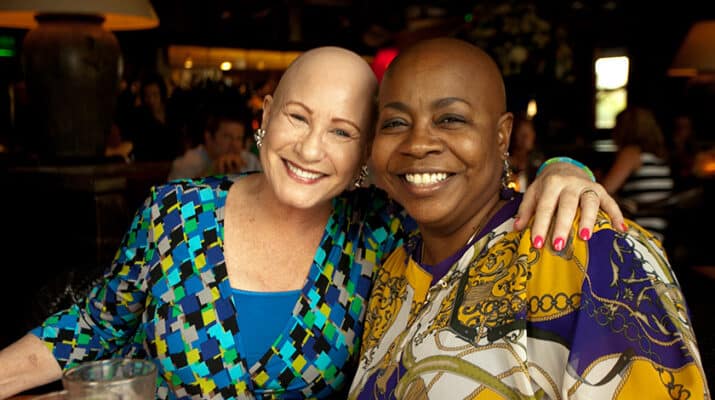By Deborah Jeanne Sergeant
T
he FDA announced in June its approval of baricitinib (brand name Oluminant, among others) to treat alopecia areata. Many people experience hair thinning and loss related to aging or medication.
Alopecia areata is different.
The autoimmune disease causes sudden, round patches of hair loss all over the head. The patches may grow in size and come and go in different areas over weeks and months. Alopecia totalis means that all of the hair on the patient’s head falls out and alopecia universalis refers to complete bodily hair loss.
About 6.8 million Americans have alopecia areata.
“Patients seem to really like the option of this medication if they’ve had this condition for a while and we’ve tried different treatments with them, like topical and intralesional steroids,” said Melissa Vaughn, nurse practitioner with Neiman Dermatology in Buffalo. “Baricitinib is a great option. We’ve seen from the studies; it has good results.”
As with any medication, the office discusses with patients the side effects and their health history. As a janus kinase inhibitor, baricitinib affects the immune system. This class of medication requires an initial tuberculosis test and routine lab monitoring.
Side effects may include higher risk of infection, increased risk of death for those 50 and older who already have one or more heart disease risk factors, possibly life-threatening blood clots and higher risk of cancer, especially for past or current smokers.
Along with King, Louis J. Papa, primary care physician at University of Rochester Medical Cener (URMC), and Sherry Schaefer, founder of My Wig Coach in Penfield, Thea Chassin, founder of Scarborough-based Bald Girls Do Lunch, appeared on Joan Lunden’s Second Opinion show airing on public television stations nationwide March 28, 2022.
Diagnosed in 1997, Chassin, founded awareness and support group Bald Girls Do Lunch, Inc. She decided that baricitinib is not right for her, but she can also understand why many women with alopecia areata feel eager to try it.
“The stigma of female hair loss is very big in our culture,” Chassin said. “Women feel less feminine and have concerns about their looks and acceptance should they choose to go without supplemental hair. There’s a lot of worry about feeling normal and feeling they fit in. Our society prizes hair, not just in the US. Hair is a defining part of a woman in most cultures. A lack of hair is a very big deal. It affects self confidence and self-esteem.”
While Chassin appeared on Lunden’s program with her bare pate exposed, she knows that many women do not feel that is the right choice for them.
Beyond appearance, a lack of hair otherwise affects health. Without eyebrows and eyelashes, dust and sweat get into the eyes easier and mucus flows readily out of the nose without hairs to stop it. Chassin said that some people with alopecia areata have painfully brittle fingernails.
She views wearing wigs, scarves, hats, turbans or nothing at all on one’s head as daily choices that women with alopecia areata can make, depending on their situation or preference. Chassin’s hair fell out slowly in patches and in overall thinning for three decades. Eventually, it had fallen out to the point where it “was hair, but not a hairdo,” she said.
She likened her appearance then to Bozo the clown.
“When I shaved it off, I felt like a huge weight had been lifted off me,” she said. “It was truly a step forward to self-acceptance.”
She also felt a powerful sense of control over a situation which had previously spun out of control for years.
For women interested in medication, Chassin views baricitinib as “a game-changer. There are many people who have been waiting for a medication that they can try. Previously, the options were limited. It’s an opportunity for people to try something if they’re not contraindicated. It doesn’t work 100% in everybody, but for those who want to try it, it’s FDA-approved.”

